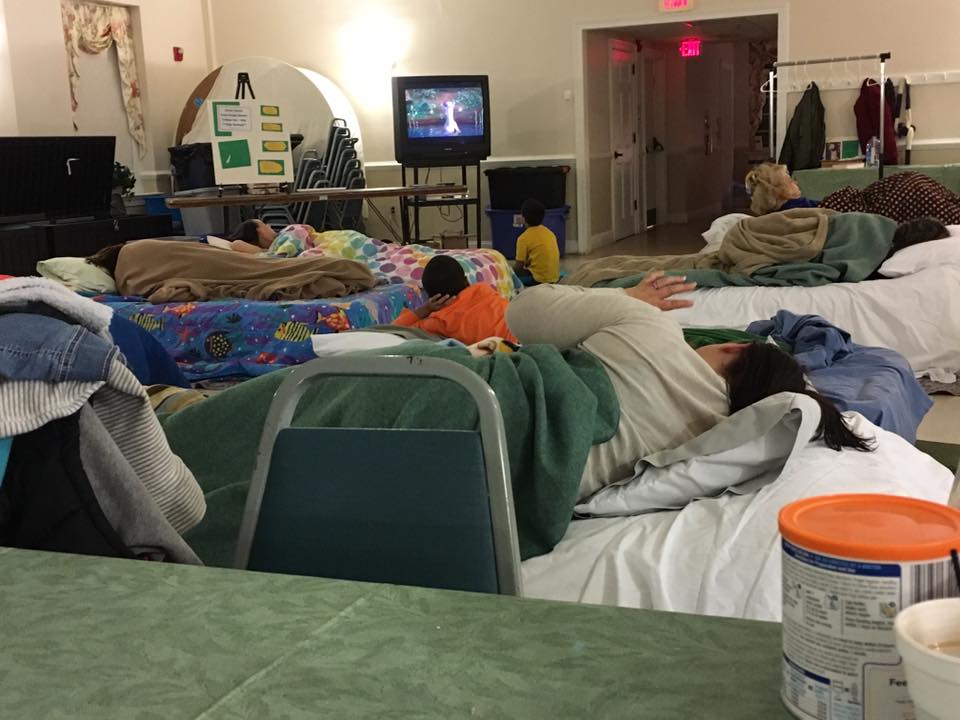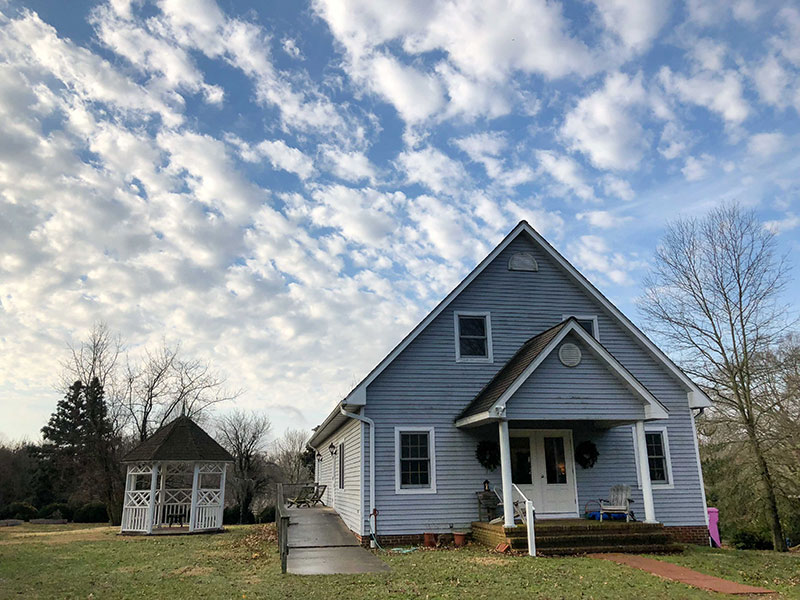Outside, the wind chill was 8 degrees. The five women who had spent the night at the Code Purple shelter were drinking coffee and eating breakfast, trying to figure out how and where to spend their Saturday. The night before, I had called 911 when a sixth woman, a diabetic, began lurching her walker around the church parish hall, howling with pain.
“Karen” asked pointed questions of both the ailing woman and the EMTs who arrived, telling me quietly that she had been a health-care professional and showing me her ring with a caduceus. They took the woman away in an ambulance, and we all settled down for a night of snoring, coughing and sleep talking. But at least it was warm.
I got about 3 hours of restless sleep on my half-deflated air mattress. At breakfast, I asked Karen if she were a doctor.
“What does it matter?” she asked with a short laugh. “I’m nothing now.”
Yet she was obviously well educated and articulate, understood medical terms and procedures, and was very familiar with Delaware politics. While I didn’t press, she said she her ability to comprehend and use numbers had been impaired by aphasia, brought on by multiple concussions. So I just sat with that, over coffee and a protein bar.
She was 63 and I had to tell her there was no Code Purple shelter that coming night.
After dropping one of the women off at the mall to reunite with her mother and young daughter, I went home – to a hot breakfast, shower and drowsy afternoon during which I kept thinking about all of them and wondering what their stories were.
A “Judgement-Free Zone”
It was the second time I had spent the night at the Friday Code Purple shelter at Christ Episcopal Church in Dover. The first time, there were two very pregnant women, both of whom I accompanied on multiple smoke breaks. Like Planet Fitness, the shelter is a “Judgement-Free Zone.” At the last minute, before we were locked in for the night, a woman showed up with two boys and a 1-year-old.
You hear a lot of dismissive comments about homeless people: They actually prefer the “lifestyle,” they make bad choices, they are addicts and pathological liars and sociopaths and grifters and mentally ill. Why do they have cell phones and smoke? Those characterizations are our defense mechanisms as a society so we don’t have to think about them, care about them, fund services for them, or sit across from them sipping coffee on a frigid February morning. Even people who claim to follow Jesus, who clearly directed us to care for the “least of these,” often view these people as an abstraction – out there somewhere.
So did I. I sponsored girls from Kenya and Haiti, gave to Donors Choose and Save the Children, and bought mosquito nets to fight malaria. I read a lot of books about social justice and Jesus’ teachings and mission, blah-blah-blah. But I had never been at Ground Zero with the Least of These.
Jesus said: “Truly I tell you, whatever you did for one of the least of these brothers and sisters of mine, you did for me” (Matthew 25:40, 45, NIV) And if you ignore them, you are ignoring Jesus.
So for me, Ground Zero was being locked into the Parish Hall for the night with these women. And waking up at 3 a.m. with a cramped leg and listening to them toss and turn and snore and mutter – wondering how they would spend their Saturday and knowing there was no local shelter for them that night.
People are hard to hate close up
In her book, “Braving the Wilderness: The Quest for True Belonging and the Courage to Stand Alone,” researcher and storyteller Dr. Brene Brown writes about how easy it is to hate (or at least stereotype) at a distance. In the chapter “People are Hard to Hate Close Up. Move In,” she writes, “Dehumanizing others is the process by which we become accepting of violations against human nature, the human spirit, and, for many of us, violations against the central tenets of our faith . . . Today we are edging closer and closer to a world where political and ideological discourse has become an exercise in dehumanization. And social media are the primary platforms for our dehumanizing behavior.”
You hear it and see it all the time – the demonization of immigrants, the poor, prisoners, liberals, conservatives, the homeless, evangelical Christians, Muslims, Hillary Clinton, Donald Trump. We are a diseased civilization. We feel helpless – traumatized, really – as we tumble around in a world turned upside down.
“What if what we experience close up is real, and what we hear on the news and from the mouths of politicians who are jockeying for power needs to be questioned?” Brene Brown asks. “It is not easy to hate people close up. And when we are in pain and fear, anger and hate are our go-to emotions.”
There’s at least a partial cure for that: Go to Ground Zero with the Least of These. Sit across the table and sip coffee with them. Spend enough time with them to listen and learn at least part of their story. Love them in all their seeming contradictions, questionable choices, and scruffiness. Withhold your judgement. Imagine yourself in their shoes, out in the cold.
They will change you.







No Comments